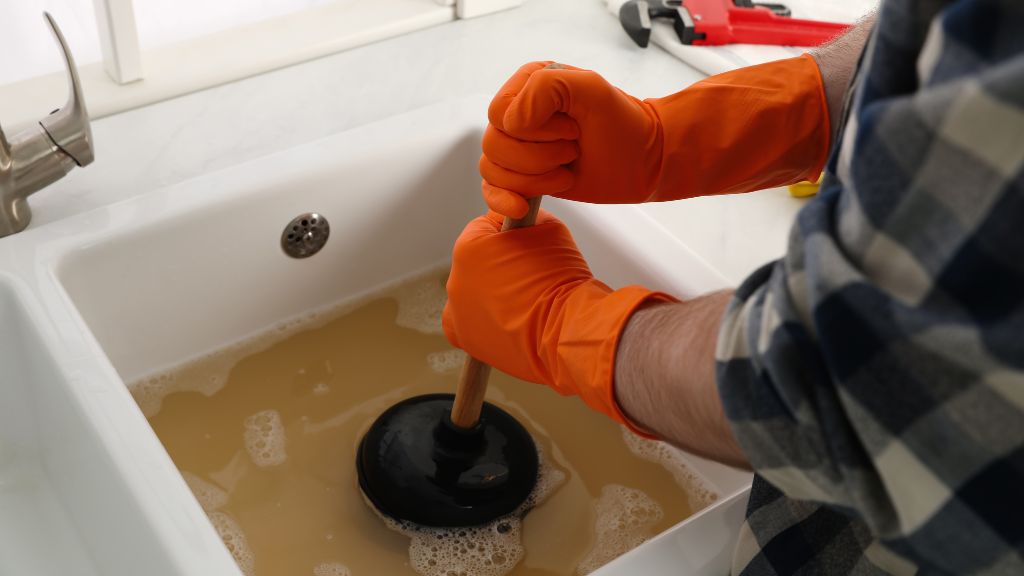 Septic maintenance
Septic maintenance involves dealing with occasional plumbing issues, and a common one is a clogged drain. While unclogging a drain might seem straightforward, it requires special consideration when you have a septic system.
Septic systems operate differently from traditional sewer systems, and improper handling can lead to costly repairs and environmental damage. See how to safely unclog a drain, ensuring both the functionality of your plumbing and the
health of your septic system.
1. Identify the Location of the Clog
Before you start any unclogging efforts, it's crucial to pinpoint the location of the clog. Determine which drain is affected and whether it's a single fixture or multiple drains backing up. Identifying the problem area(s) can help you decide on the appropriate course of action and whether to call a professional.
2. Skip Chemical Drain Cleaners
Don't fall for the marketing hype of chemical drain cleaners. While they can seem like a quick fix, they can damage your pipes and septic system. Chemicals not formulated for septic systems can kill the beneficial bacteria in your tank, disrupting its natural balance and potentially leading to system failure. Instead, opt for gentler methods on your plumbing and septic system.
3. Use a Plunger
A plunger is an effective tool to unclog drains that don’t cost much. However, use a plunger specifically designed for sinks or drains, as toilet plungers are shaped differently. Place the plunger over the drain and form a tight seal before plunging up and down vigorously to help dislodge the clog without causing damage to your septic system.
4. Try a Plumbing Snake
You may need a plumbing snake or auger to break up a stubborn clog. After inserting the snake into the drain, rotate it clockwise to maneuver through the pipe. Once you reach the clog, gently push and pull the snake to break it apart. Avoid excessive force, which can damage your pipes or septic system.
5. Consider Natural Remedies
For minor clogs or regular maintenance, consider using natural remedies to keep your drains clear. Pouring boiling water down the drain can help loosen and dissolve
grease and organic matter. You can also try a simple yet effective baking soda and vinegar mixture to break up clogs. Allow it to fizz for a few minutes before flushing the drain with hot water.
6. Call a Plumber
If you can't unclog the drain on your own or suspect a more serious issue, it's best to call a professional plumber. They have the expertise and specialized equipment to diagnose and resolve plumbing problems safely and efficiently.
Preventative Measures and Regular Septic Maintenance
To avoid future clogs and keep your septic healthy, practice preventative maintenance.
Avoid flushing or putting items down your drains that can cause clogs (e.g. paper towels, grease, fibrous food scraps). Additionally, install a mesh drain strainer to catch hair and small debris in sinks and showers.
Furthermore, it's important to
schedule regular maintenance with a septic maintenance company. The technicians can inspect your system, pump the tank when needed, and offer advice on how to properly care for your septic system to prevent backups and prolong the life of your system.
Clear Pipes Are Essential for Septic Health
By following these tips, you can safely unclog a drain without compromising the well-being of your septic system. Remember always to exercise caution and avoid using harsh chemicals or methods that could damage your plumbing or septic system.
When in doubt, don't hesitate to seek help from a qualified professional. Keeping your drains clear is a critical aspect of a healthy septic system, ensuring a smoothly running household for years to come.